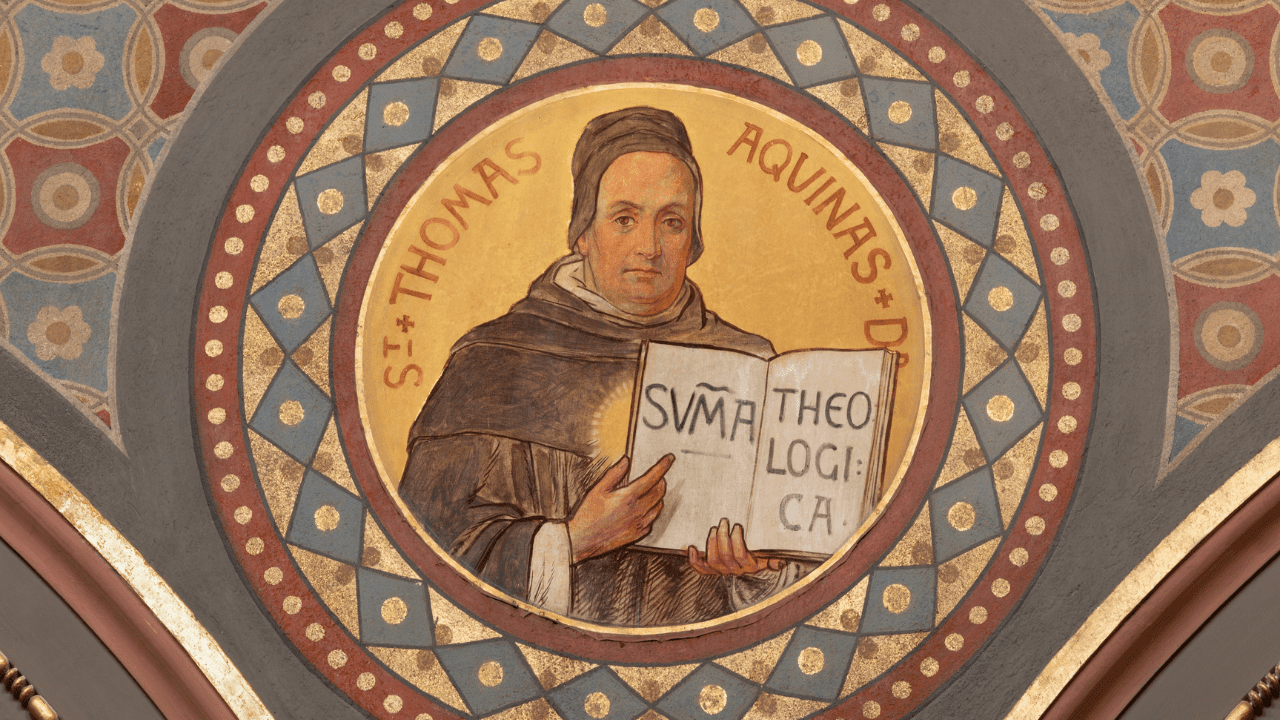Broadly speaking, a Thomist is someone who follows the teachings of St. Thomas Aquinas (or at least claims to do so). This doesn’t mean they accept every single opinion uttered by the Angelic Doctor. As great as St. Thomas was, he occasionally got things wrong!
The bulk of his theological teaching has stood the test of time. To understand what a Thomist is, let’s look at key aspects of the Dominican saint’s thought.
St. Thomas was a great synthesizer.
St. Thomas is famous for synthesizing different strains of thought, such as faith and reason. While he was faithful to revelation, he drew from pagan, Jewish, and Islamic sources when they made claims that supported the Catholic faith.
A word of caution: Some people treat St. Thomas Aquinas as a synchronizer who mixed and molded aspects of different religions. They ignore the fact that he believed the Catholic Church to be the one true religion and merely drew on other religions to support the faith. In other words, they emphasize his methodology at the expense of his content. To be a Thomist means to be invested in both.
St. Thomas recognized the divine authority of Scripture, Sacred Tradition, and the Magisterium.
You can’t be a true Thomist without recognizing God’s revelation and the authority of His ministers. St. Thomas submitted all his work to the teaching authority of the Church.
St. Thomas treated Sacred Scripture as the soul of theology. Protestants who claim that Catholics ignore Scripture should read his writings, which are full of Biblical quotes.
He draws on the Church Fathers, recognizing that these men have a high degree of authority due to their learning, sanctity, and proximity to Christ and the Apostles.
Thomists don’t just repeat what St. Thomas said, but they use his principles to engage the issues of their time.
If you read the great Thomists of the past century, you’ll notice how they masterfully take St. Thomas’ teaching and use it to better understand modern topics, such as evolution, phenomenology, and economics. The great saint’s teachings have proven fresh and relevant, as they offer insights into these issues.
We could add that a real Thomist is a person devoted to prayer and the sacraments. Not that one can’t master the saint’s thought without these, but St. Thomas himself was fueled by prayer and the Eucharist. If we are as well, we will see deeper into the riches of his teachings.







